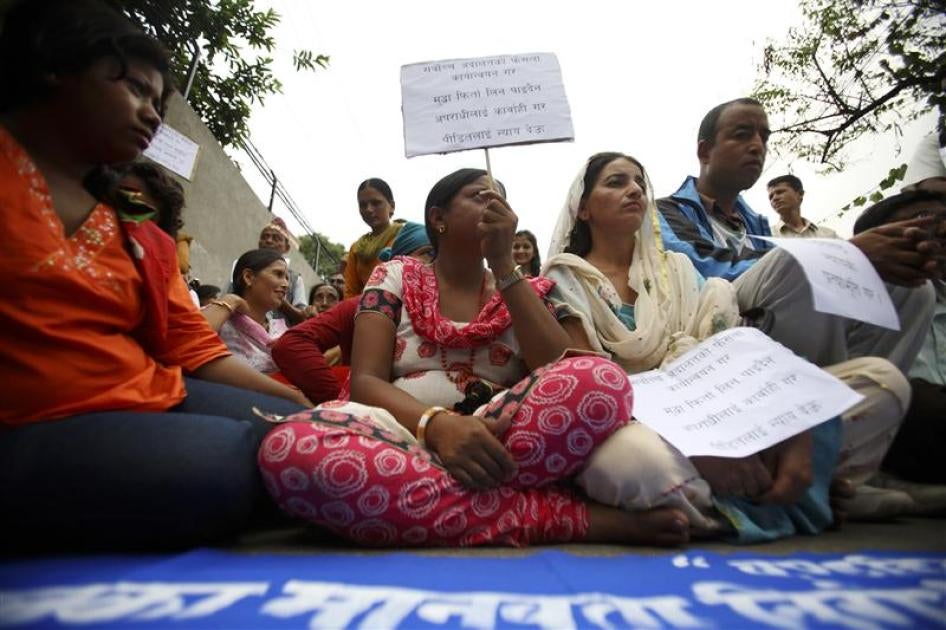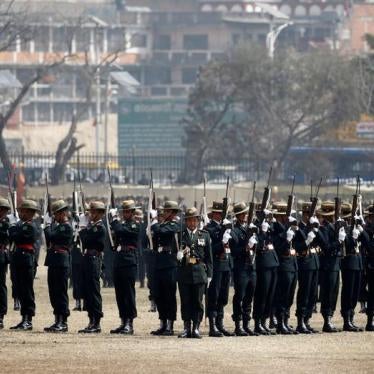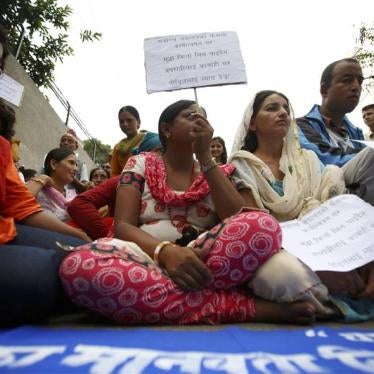On October 16, Nepal became a member of the United Nation’s Human Rights Council for a two-year period beginning in January. The Government, long-reeling from accusations of stalling on human rights commitments, welcomed this development as signaling “the international community’s acknowledgment of Nepal’s passionate efforts and accomplishments in the field of promotion and protection of human rights and fundamental freedoms.”
The Human Rights Council (HRC), established in 2006, has become an important institution for holding countries to account on human rights issues. During what are known as Universal Periodic Reviews, all UN member states submit reports and updates, respond to criticism, and commitments to reform. The council also has the capacity to appoint special rapporteurs and other independent experts to ensure effective investigation into alleged abuses in specific countries, even when the country concerned refuses to cooperate.
Perhaps the Council’s most significant contribution has been in its capacity to appoint commissions of inquiry specific to particular countries – and these have included North Korea, Syria, Burundi, and Sri Lanka. While the establishment of such commissions requires strong political will within the larger international community, the voting members of the HRC decide whether a specific commission of inquiry will be established, and what its contours will be.
Thus, Nepal’s membership in the Human Rights Council will mean that it can meaningfully shape the human rights discourse over the coming two years. The question is how well it will exercise that responsibility. How will the government of Nepal vote when faced with serious human rights crises around the world?
It is important to remember that it was not that long ago that Nepal itself was the object of scrutiny, both before the Council and its predecessor, the UN Commission on Human Rights. There were well-documented allegations of serious human rights and international humanitarian law violations by both government forces and the forces of the Communist Party of Nepal-Maoist (CPN-M). The civil war between 1996-2006 raised international alarm. More than 13,000 people were killed and thousands were forcibly disappeared during the war. Sexual violence and torture were used by both sides.
Even as the conflict escalated, the Nepal government, confronted time and again in Geneva over the allegations, simply denying and obfuscating, and telling the international community that its internal affairs were none of its business. However, international persistence paid off. In 2005, the Nepal government agreed to a dedicated UN Office of the High Commission on Human Rights (OHCHR) for Nepal, with a broad mandate including monitoring violations countrywide. The Nepal government continued to resist full cooperation with the OHCHR office, however, and in 2012 refused to extend its mandate. But the office produced an important mapping account of wartime allegations that serves as a blueprint for Nepal’s transitional justice promises to this day. This mapping exercise is also important for Nepal’s ultimate return to peace with accountability.
The history of the Nepal government’s engagement in Geneva, plus subsequent and ongoing intransigence in implementing peace-talk promises of transitional justice, raises grave concerns about how it will vote as a member of the Human Rights Council. Nepal has yet to carry out several Supreme Court directives to bring its Truth and Reconciliation Commission law (TRC) in line with international standards. The UN itself expressed concern over this issue in 2014, calling on the Government to bring the law in line with its international legal obligations.
Not only did the government not heed its own supreme court and the united nations, disturbingly, it also opposed the call to carry out any reform. In May 2016, the four main political parties agreed to withdraw all conflict-era cases before the courts and to provide amnesty to all individuals allegedly responsible.
A government that does not care about protecting human rights and ensuring justice for its own citizens cannot pretend to care about protecting the human rights of others. One can take the example of the increasing disregard for the rights of Tibetan refugees by successive Nepal governments, signaling that the Government will cave in when matters relate to powerful countries such as China in rolling back rights. This is not a good omen for Nepal’s Human Rights Council membership.
All of these tendencies should give pause to anyone who thinks Nepal’s membership on the HRC ipso facto reflects a renewed commitment to human rights at home or abroad. Nepal should not only address its failures internally but also be a positive actor for oppressed and suffering people all over the world.
|
Commentary
Responsibilities at Home and Abroad
Published in:
Nepali Times
Your tax deductible gift can help stop human rights violations and save lives around the world.
Topic
Most Viewed
-
November 25, 2019
A Dirty Investment

-
June 3, 2025
“They’re Ruining People’s Lives”

-
January 25, 2024
“We’re Dying Here”

-
December 21, 2023
Meta’s Broken Promises

-
February 19, 2018
“All We Want is Equality”





